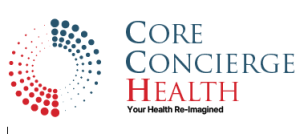Cervical Health Awareness Month: Understanding the Importance of Prevention and Early Detection
Each January, we observe Cervical Health Awareness Month, a time to raise awareness about cervical cancer, its prevention, and the importance of early detection. Cervical cancer is one of the most preventable cancers, and this month offers an opportunity to educate individuals on how they can protect their health, reduce their risk, and seek timely screenings.
What Is Cervical Cancer?
Cervical cancer begins in the cervix, the lower part of the uterus that connects to the vagina. It is most commonly caused by persistent infection with certain types of human papillomavirus (HPV), a sexually transmitted infection. Although cervical cancer is highly treatable when detected early, many cases are diagnosed at later stages, when the cancer is harder to treat. The good news is that cervical cancer can often be prevented through regular screenings and vaccination.
The Role of HPV in Cervical Cancer
HPV is a group of more than 200 related viruses, some of which are linked to various cancers, including cervical cancer. While most HPV infections go away on their own without causing harm, certain high-risk strains can persist and lead to changes in the cells of the cervix over time. These changes can develop into precancerous lesions, and if left untreated, they may eventually become cancerous.
The HPV vaccine, which is recommended for both girls and boys before they become sexually active, can significantly reduce the risk of developing cervical cancer by protecting against the most dangerous strains of the virus. Vaccination, combined with regular screenings, is one of the most effective ways to prevent cervical cancer.
The Importance of Pap Smears and HPV Testing
Papanicolaou test commonly known as a PAP smear (also known as a Pap test) is a simple screening procedure that detects abnormal changes in the cervix. During a Pap smear, a doctor collects a sample of cells from the cervix to examine under a microscope. If abnormal cells are found, further testing may be needed to determine whether they could lead to cancer.
For women aged 21 and older, regular Pap smears are crucial. The frequency of these screenings depends on age and health history. In some cases, women may also undergo HPV testing alongside a Pap smear to check for high-risk types of HPV that could lead to cervical cancer.
It is essential to speak with a healthcare provider to determine the most appropriate screening schedule based on your age and individual health needs.
Symptoms of Cervical Cancer
In its early stages, cervical cancer may not present any noticeable symptoms, which is why regular screenings are so important. As the cancer progresses, however, symptoms may include:
- Unusual bleeding (e.g., after intercourse, between periods, or post-menopause)
- Pelvic pain
- Pain during intercourse
- Unexplained weight loss or fatigue
These symptoms, though, can be indicative of a range of conditions. If any of these signs are present, it is essential to consult a healthcare provider to rule out or diagnose cervical cancer early.
The HPV Vaccine: A Powerful Tool in Prevention
One of the most significant advances in cervical cancer prevention has been the development of the HPV vaccine. The vaccine, which is recommended for both boys and girls, is most effective when given before any exposure to HPV through sexual activity. For those who are already sexually active, the vaccine can still provide protection against other HPV types.
The HPV vaccine is typically administered in a series of two or three doses, depending on the recipient’s age. It protects against the most common types of HPV that cause cervical cancer, as well as other cancers like throat, anal, and penile cancers.
By getting vaccinated, individuals can reduce their risk of developing HPV-related cancers later in life, making it one of the most powerful tools in cancer prevention.
Reducing the Risk of Cervical Cancer
In addition to regular screenings and vaccination, there are several lifestyle changes that can help reduce the risk of cervical cancer:
- Practice safe sex: Using condoms can lower the risk of HPV infection and other sexually transmitted infections (STIs).
- Limit the number of sexual partners: Reducing the number of partners can decrease the likelihood of exposure to HPV.
- Don’t smoke: Smoking has been shown to increase the risk of cervical cancer, as it weakens the immune system’s ability to fight off infections, including HPV.
- Maintain a healthy lifestyle: Eating a balanced diet, exercising, and managing stress all contribute to overall health and can help support the body’s ability to prevent infections.
The Importance of Education and Awareness
Cervical Health Awareness Month serves as an important reminder to educate ourselves and others about the steps we can take to prevent cervical cancer. By increasing awareness about the availability of screenings and the HPV vaccine, we can empower individuals to take proactive measures to protect their health.
It is essential to have open conversations about cervical health, whether through sharing information online, discussing it with friends and family, or seeking guidance from healthcare providers. The more people understand about the importance of early detection, prevention, and vaccination, the more lives can be saved.
Cervical Health Awareness Month is an opportunity to reflect on the progress made in preventing cervical cancer and to encourage others to take the necessary steps to protect their health. Regular Pap smears, HPV vaccinations, and healthy lifestyle choices are vital components in the fight against cervical cancer. By raising awareness, we can ensure that more individuals have the knowledge and resources to prevent and detect cervical cancer early, saving lives and improving overall health. At Core Concierge Health we help empower our patients with the information and tools they need to take control of their health.
Visit our website TODAY and schedule your FREE Membership Consultation to see what membership has to offer.
























































